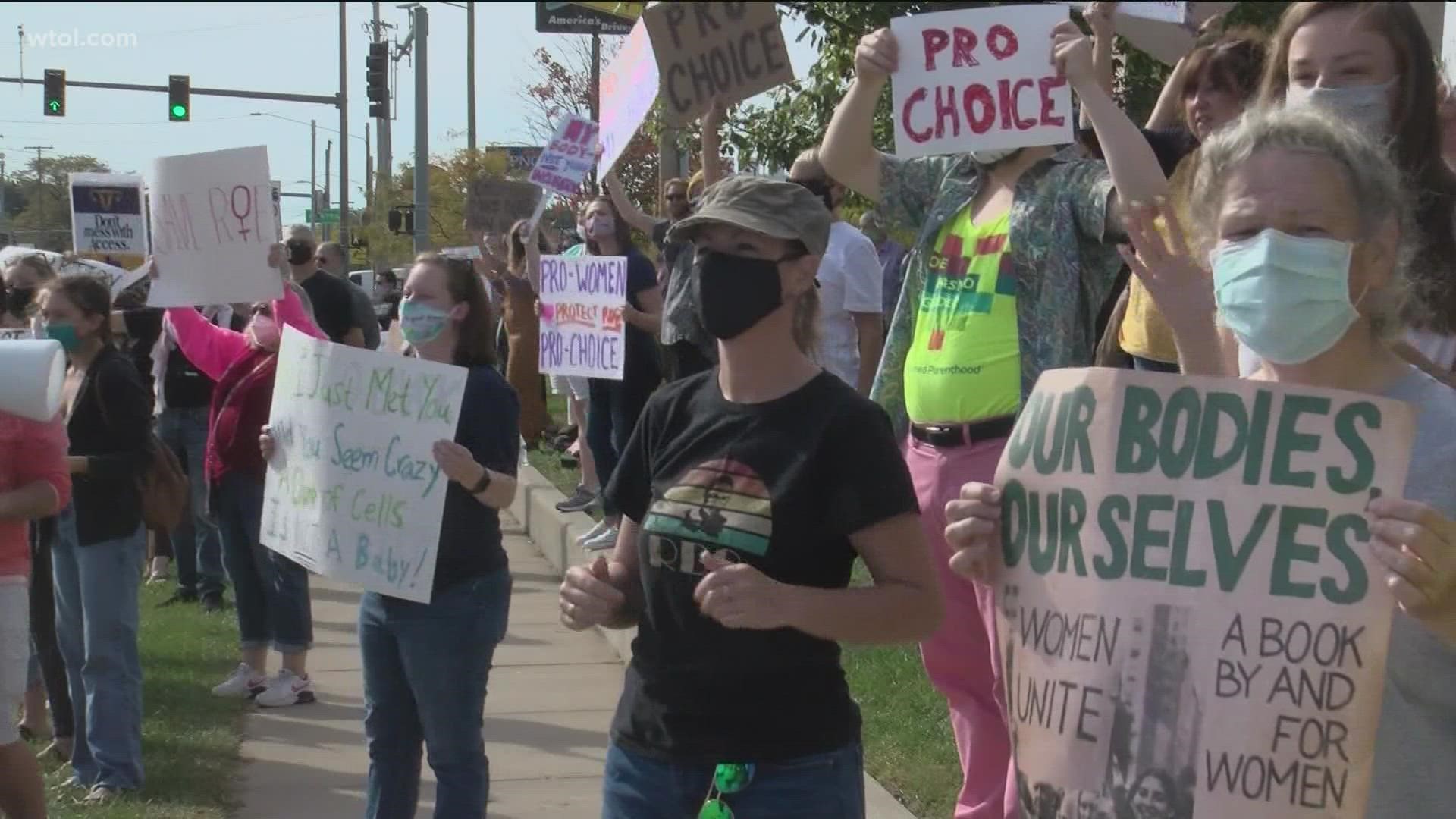TOLEDO, Ohio — In the wake of a leaked draft opinion on the upcoming U.S. Supreme Court ruling on abortion rights, a University of Toledo constitutional law professor offered some analysis Tuesday about what the leak means and what to expect with the ruling.
Lee Strang, a law professor at the University of Toledo, said Tuesday the upcoming ruling on an abortion will be the biggest decision since 1954 when Brown v. Board of Education desegregated schools in the United States.
And while court observers and advocates on both sides of the abortion debate have been awaiting the ruling for months, a draft copy of a ruling on the matter was unexpectedly leaked to the public late Monday night.
The leak was shocking from the ordinarily extremely secure deliberations process of the nation's highest court. The draft, which had been written in February, signaled that the court is preparing to strike down Roe v. Wade, effectively sending the decision about whether abortion will remain legal back to individual states.
"If this majority opinion does become the actual majority opinion, what it means in the short term is that the issue of, to what extent, if any, states should regulate abortion, goes back to the states," Strang said. "So each state, California, New York, Ohio, and Utah, get to decide consistent with their citizens views what should the regulation of abortion be."
Such a ruling would overturn the legal precedent that has kept abortion legal for 50 years.
Strang explained that the court's reasoning for the reversal, contained in the 98-page draft, is that Roe v. Wade's original reasoning didn't effectively support the claim that abortion is an enumerated right. Strang said the justices who support the ruling are basing their logic strictly on the language of the Constitution.
"[The draft] criticized the constitutional foundation of Roe v. Wade, and it did so by saying that there's nothing in the Constitution's text, there's nothing in the history of the American people, and there's no Supreme Court precedent prior to Roe that supported a constitutional right to abortion," Strang said.
But because the leaked draft is from February, Strang said there still is uncertainty as to whether the leaked draft is the most recent version.
"So this is just a draft opinion, we don't know if the current majority opinion is the same, we don't know how different it is, we don't even know if it's a majority opinion anymore," he said.
However, Strang said the conventional view in law circles is that the leaked draft still is the majority opinion. Most believe the court will strike down both Roe v. Wade and a subsequent case, Casey v. Planned Parenthood, in a matter of days or weeks. Strang said the court will likely move quickly now due to all of the uncertainty created by the leaked draft, which Strang said has never happened before.
"I'm not aware of a majority opinion issued prior to the actual majority opinion, formally being issued. So this is unprecedented, and I think it shows the nature of the subject matter," Strang said.
While the Supreme Court has confirmed the draft is authentic, they have yet to submit it as the majority opinion, making it law. Strang saod putting the decision in the hands of the states could soften political discourse.
"Since preferences for abortion aren't evenly divided, Utahans tend to be more pro-life than New Yorkers, that the states will more closely reflect their citizens views on abortion, so I think it will actually lower the temperature in the debates on abortion," Strang said.
In Ohio, a bill in the General Assembly would ban all abortions in the event Roe v. Wade is overturned. The bill is not scheduled for a vote, but with Republican super majorities in both the state House and state Senate, most believe it would pass easily and that Gov. Mike DeWine -- who opposes abortion and has signed other anti-abortion legislation -- would sign it.
More on WTOL:

